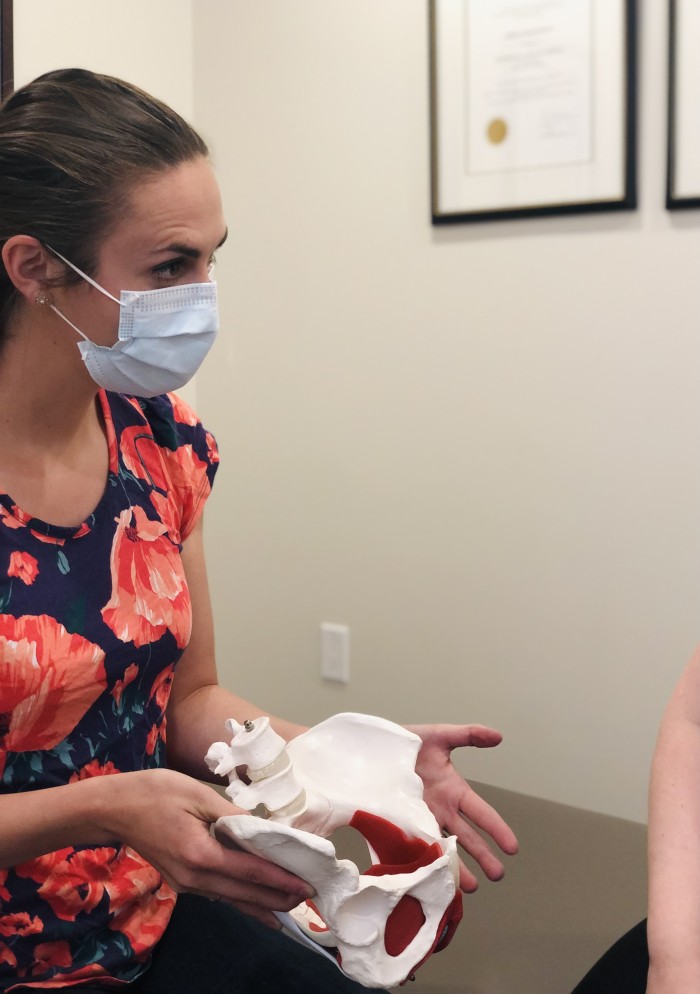We treat men and women with pelvic health issues at Physiohaus!
Pelvic health physiotherapy addresses issues around the pelvic floor and its impact on continence, pain, and muscular control. Pelvic health physiotherapists have specialized training to evaluate your history as it relates to your pelvic area, and the pelvic floor muscles, connective tissue and nervous system. They are able perform an internal examination if appropriate. A pelvic health evaluation may be the missing link in pelvic pain, low back or hip pain, or chronic core muscle imbalance.
Pelvic floor muscles function together to maintain urinary continence, bowel movements, lumbar stability, and sexual function. Many people with pelvic pain have pelvic floor dysfunction, but specifically, hypertonic muscles or muscles that are too tight. Alternatively they can have hypotonic muscles or weak pelvic floor muscles, or a combination of both, muscles that are too tense and too relaxed.
What is the pelvic floor?
The pelvic floor is the base of the group of muscles commonly referred to as your 'core'. These muscles play an important role in bladder and bowel control and sexual function.
How can I tell if I have a pelvic floor problem?
- accidentally leaking urine when you exercise, play sport, laugh, cough or sneeze
- needing to get to the toilet in a hurry or not making it there in time
- constantly needing to go to the toilet
- finding it difficult to empty your bladder or bowel
- accidentally losing control of your bowel
- a prolapse (pressure, bulging or discomfort in the pelvic area)
- pain in your pelvic region
- painful sex
Who is at risk of pelvic floor problems?
People who are most at risk of pelvic floor problems are:
- pregnant women
- women who have recently, or ever, had a baby
- women who are going through, or have gone through, menopause
- women who have undergone gynaecological surgery such as a hysterectomy
- men who have undergone surgery for prostate cancer
- elite athletes such as runners and gymnasts
This risk is higher if you:
- have a history of back pain
- have ever experienced injury to your pelvic region
- are constipated
- strain when you go to the toilet
- have a chronic cough or sneeze
How can Pelvic Health treatment help?
Even though pelvic floor challenges are common, they are treatable and you should not have to live with them. Pelvic health treatment can help you regain control, maximize your function and recovery, and improve your well-being. Research strongly supports pelvic floor treatment as the first line of defence against incontinence and pelvic pain. Kegel exercises may not help everyone since the cause of pelvic floor dysfunction can be either muscle weakness or tightness. Sometimes they do more harm than good, and often are not performed correctly.
Pelvic health physiotherapists can evaluate and treat your pelvic floor dysfunction using manual therapy techniques externally and internally.
At Physiohaus, Jane Hendriksen has taken specialized training in Pelvic Health and has gained the knowledge and ability to assess and treat people with incontinence and a variety of pelvic pain conditions. Jane has a special interest in helping active individuals with incontinence and pelvic pain, return to normal life!


Inquire Now!


